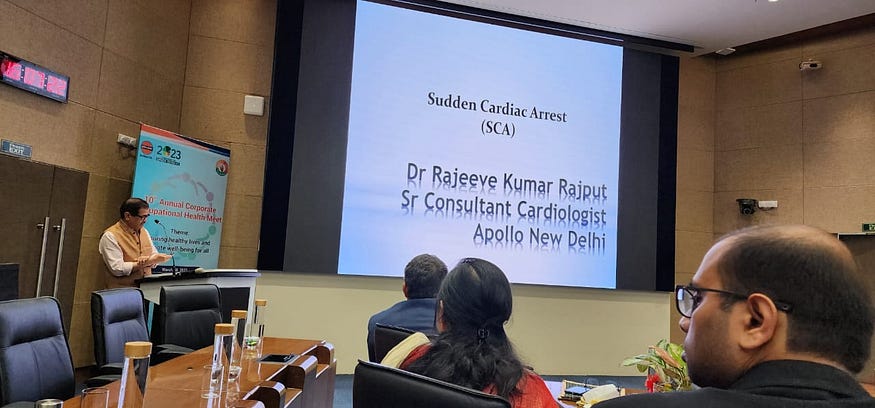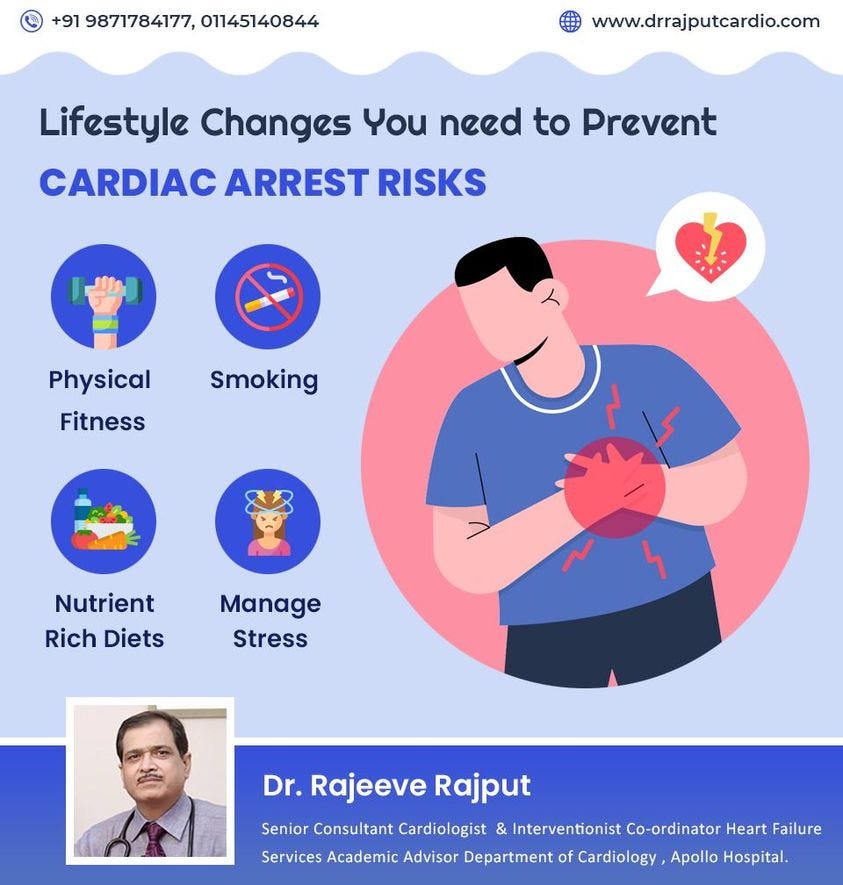Understanding Sudden Cardiac Arrest: A Guide by Top Cardiologist in Delhi
Sudden cardiac arrest (SCA) is a life-threatening medical emergency that occurs when the heart suddenly and unexpectedly stops beating. It can happen to anyone, at any time, and without warning. SCA can lead to sudden death if not treated immediately.
As a Top Cardiologist In Delhi, I have seen several cases of SCA in my practice. This article will provide a comprehensive guide on SCA, including its causes, symptoms, risk factors, and treatment options.
Causes of Sudden Cardiac Arrest
An underlying heart condition, such as coronary artery disease, heart failure, arrhythmia, or cardiomyopathy often causes SCA. Other causes may include drug overdose, trauma to the chest, or electrocution.

Symptoms of Sudden Cardiac Arrest
In most cases, SCA occurs suddenly and without warning. However, some people may experience warning signs, such as chest pain, shortness of breath, fainting, or dizziness.
Risk Factors of Sudden Cardiac Arrest
Several factors can increase your risk of SCA, including:
Age: The risk of SCA increases with age.
Gender: Men are more likely to experience SCA than women.
Family history: If you have a family history of SCA, you may be at a higher risk.
Smoking: Smoking can increase your risk of SCA.
High blood pressure: Uncontrolled high blood pressure can lead to SCA.
High cholesterol: High levels of cholesterol can cause plaque buildup in the arteries, which can increase the risk of SCA.
Diabetes: People with diabetes are at a higher risk of SCA.
Obesity: Being overweight or obese can increase the risk of SCA.
Treatment of Sudden Cardiac Arrest
The treatment of SCA involves an immediate intervention to restore the heart’s normal rhythm. The most effective treatment for SCA is defibrillation, which involves delivering an electric shock to the heart to restore its normal rhythm. Automated external defibrillators (AEDs) are commonly used in public places, such as airports, malls, and stadiums, to provide emergency care to people experiencing SCA.
If defibrillation is not immediately available, cardiopulmonary resuscitation (CPR) can be performed to manually pump blood to the heart and brain until defibrillation can be administered.

Prevention of Sudden Cardiac Arrest
There are several steps you can take to reduce your risk of SCA, including:
- Quitting smoking
2. Controlling high blood pressure
3. Managing high cholesterol
4. Managing diabetes
5. Maintaining a healthy weight
6. Exercising regularly
7. Avoiding drugs and alcohol
Conclusion
Sudden cardiac arrest is a life-threatening medical emergency that can happen to anyone, at any time. As a Top Heart Specialist Doctor In Delhi, I strongly advise you to reduce your risk of SCA, such as maintaining a healthy lifestyle, quitting smoking, and managing any underlying medical conditions. If you or someone you know experiences symptoms of SCA, seek immediate medical attention. Remember, timely intervention can save lives.
While the blog discusses sudden cardiac arrest, it's important to acknowledge the expertise of Heart Specialist In Chennai. Knowledge on heart health is essential. Informative post!
ReplyDelete